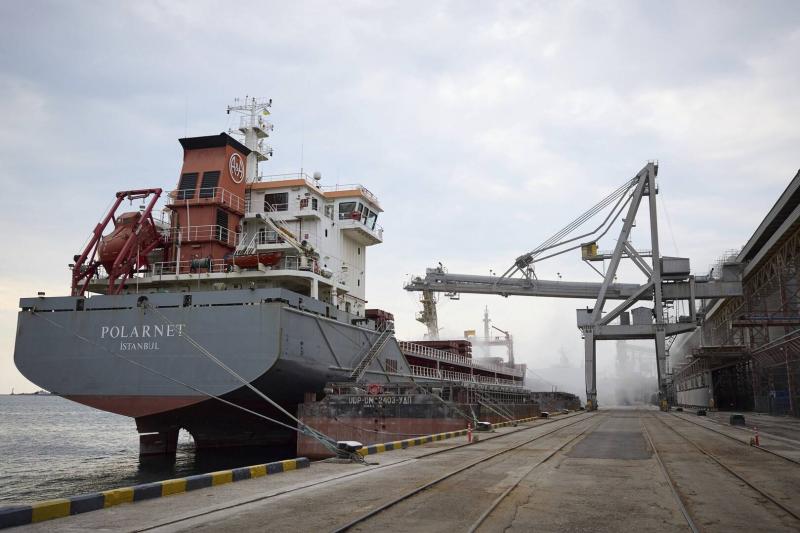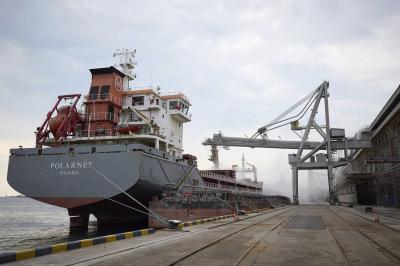Multiple signs indicate that Lebanon, despite its “wooden” components, is a "friendly" country within the system of "free world" nations, no matter how much some may strive otherwise.
The "loss" is distinct from whether the Ukrainian grain ship arrives at the port of Tripoli, is delayed, or perhaps changes its destination. Regardless of technical dimensions, global food security needs, and various requirements or agreements, the mere announcement that Lebanon would be the destination for the first grain-loaded ship leaving the Ukrainian port of Odessa for the first time since February 24, five months into the Russian war on Ukraine, is a significant event in itself. However, this announcement (regardless of any modifications or changes in destination that may occur later) is a "loss" for Lebanon today, due to the absence of a capable Lebanese authority to leverage this toward further engagement with the "free world," thereby lifting the siege on the country, in favor of a "wooden" Lebanese authority at all levels.
What could be more "wooden" than that Lebanese authority, other than some components of its population, who believe that "drone equations" dictate the country's future, while the pillars of power practice their "demarcation heroics" and "victoriously" announce their agreement on the majority of what they themselves declared in the "framework agreement" since 2020, without the desire for further scrutiny.
In any event, despite the regional and international fluctuations surrounding the southern maritime demarcation file and the indirect negotiations linked to it, any positives or negatives emerging from this matter do not stray from the overall external scene. U.S. sanctions on Iranian oil are seen by many observers as more political than "executive," aimed at pressuring Tehran to return to the negotiating table, stemming from a convergence of American-European-Iranian interests in overlooking the "violative" Iranian oil shipments.
The West needs additional quantities of oil in the markets to alleviate the global economy. Meanwhile, Iran needs to sell its oil "circumventing" sanctions at suitable prices, which are no longer available to Tehran in the Chinese market, forcing Iran (and Venezuela as well) to undertake the largest "price-cutting" operations to compete with Russian energy sources invading the market in both China and India with reduced prices, complicating matters for others in Beijing and New Delhi.
This explains the backgrounds of some "oil operations" taking place in the waters between Iraq and Iran, with document forgery involving some Gulf entities as well, to disguise the origin of Iranian oil shipments, selling them as if they were Iraqi to evade U.S. sanctions.
Who is deceiving whom in Lebanon? Are the southern "demarcation" negotiations genuinely contingent on drone pressures? What about the impacts of the U.S. and European "buying and selling" negotiations regarding Iranian oil sanctions, assisted by some Gulf entities working to secure additional resources for the Iranian regime, albeit through "circumventing" methods?
An informed source indicated that "the Lebanese side is very 'pragmatic' in the maritime demarcation file." He pointed out in a talk with "Akhbar Al-Youm" Agency that "the agreement is nearing its conclusion, according to the latest information, with a percentage ranging between 60 to 70 percent. As for talk of drones and threats of war, they bear no value."
The source emphasized that "the agreement with Lebanon is specifically related to the gas conflict. Israel is working to export gas to Europe before the cold season there. Prices are currently very lucrative in this context, allowing any exporting entity to earn a lot of money." He concluded, "This has made Israel ready to negotiate again and make concessions. The concession of maritime areas, whether they are known to contain gas reserves or not, and in what quantity, will not pose a problem compared to the most important goal, which is to start exporting gas to Europe soon."




